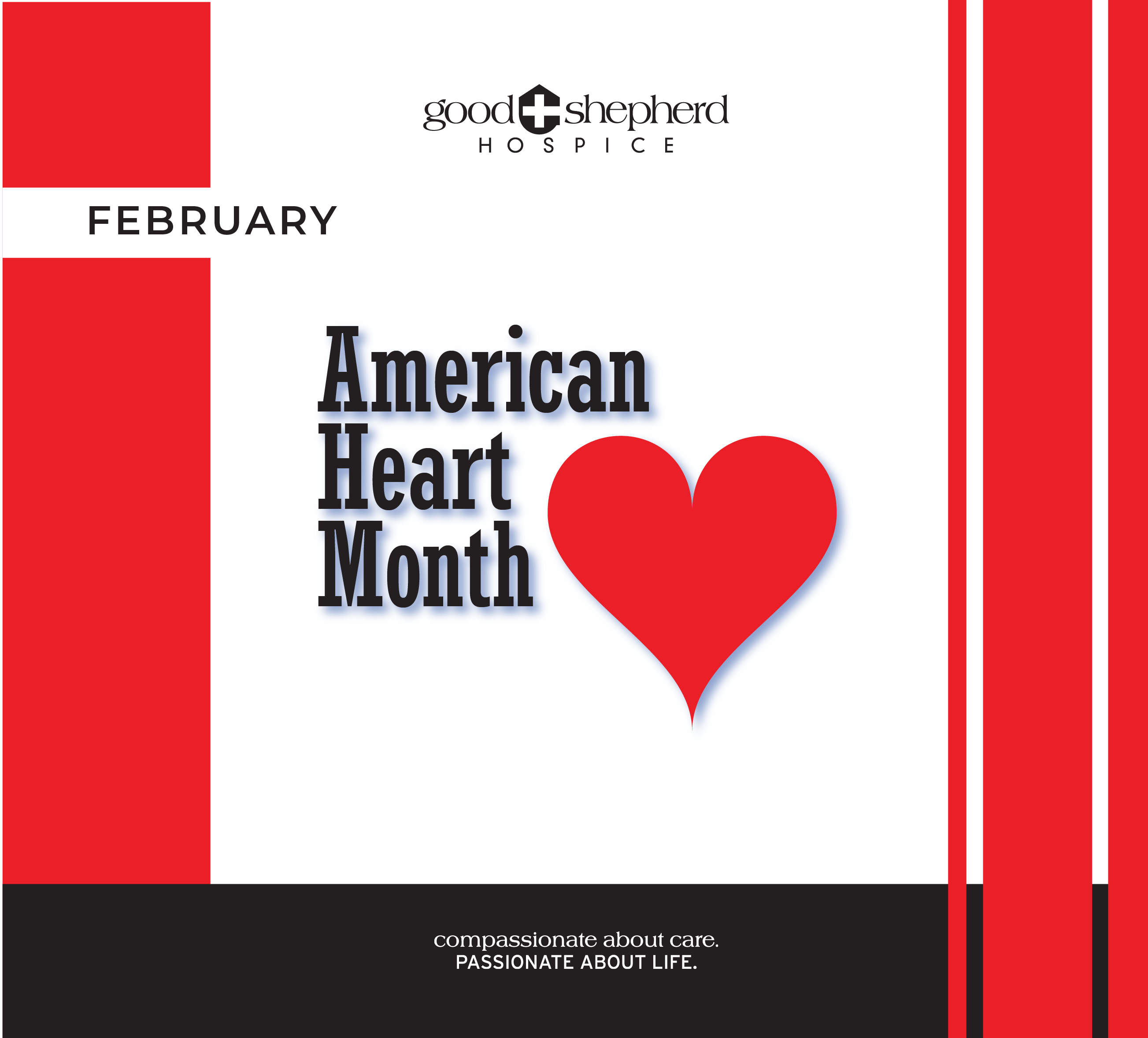Our cardiovascular health is a vital part of our overall health. Making healthy food choices, exercising, lowering stress levels, getting proper sleep, and quitting smoking are all things that you can do to help improve your cardiovascular health. For some of us, in spite of our best efforts, our diet, lifestyle, or genetics may catch up with us and we can find ourselves dealing with heart failure. This February, we want to highlight the importance of cardiovascular health during American Heart Month by sharing with you some of the warning signs of heart failure. This information from the American Heart Association1 can help you to understand possible symptoms and what they could mean for you.
Shortness of breath (also called dyspnea)
People with heart failure may experience breathlessness during activity (most commonly), at rest, or while sleeping, which may come on suddenly and wake you up. You often have difficulty breathing while lying flat and may need to prop up the upper body and head on two pillows. You often complain of waking up tired or feeling anxious and restless.
Why It Happens
Blood “backs up” in the pulmonary veins (the vessels that return blood from the lungs to the heart) because the heart can’t keep up with the supply. This causes fluid to leak into the lungs.
Persistent coughing or wheezing
People with heart failure may experience coughing that produces white or pink blood-tinged mucus.
Why It Happens
Fluid builds up in the lungs due to blood backing up in the pulmonary veins and the heart not being able to keep up with the supply.
Buildup of excess fluid in body tissues (edema)
People with heart failure may experience swelling in the feet, ankles, legs or abdomen or weight gain. You may find that your shoes feel tight.
Why It Happens
As blood flow out of the heart slows, blood returning to the heart through the veins backs up, causing fluid to build up in the tissues. The kidneys are less able to dispose of sodium and water, also causing fluid retention in the tissues.
Tiredness, fatigue
People with heart failure may experience a tired feeling all the time and difficulty with everyday activities, such as shopping, climbing stairs, carrying groceries or walking.
Why It Happens
The heart can’t pump enough blood to meet the needs of body tissues. The body diverts blood away from less vital organs, particularly muscles in the limbs, and sends it to the heart and brain.
Lack of appetite, nausea
People with heart failure may experience a feeling of being full or sick to your stomach.
Why It Happens
The digestive system receives less blood, causing problems with digestion.
Confusion, impaired thinking
People with heart failure may experience memory loss and feelings of disorientation. A caregiver or relative may notice this first.
Why It Happens
Changing levels of certain substances in the blood, such as sodium, can cause confusion.
Increased heart rate
People with heart failure may experience heart palpitations, which feel like your heart is racing or throbbing.
Why It Happens
To “make up for” the loss in pumping capacity, the heart beats faster.
If you are experiencing these symptoms and are undiagnosed, it is important to discuss them with your doctor. Keeping track of sudden changes in symptoms is important, especially if you have been diagnosed with heart failure. Discuss these changes with your medical team. As heart failure progresses, it is important to discuss your wishes with your medical team and family, making a plan for the kind of care you wish to have. Hospice care may be the best option moving forward. Congestive heart failure patients receiving hospice care lived an average of eighty-one days longer than similar patients who did not choose hospice.2 At Good Shepherd Hospice, we have extensive experience caring for patients suffering from advanced heart failure. Our compassionate, caring, and knowledgeable team will work with you and your family to provide a plan of care that works for you and your family. If you have a patient or a loved one who could benefit from hospice care, contact us today.
1 Warning Signs of Heart Failure. (n.d.). Retrieved December 11, 2020, from https://www.heart.org/en/health-topics/heart-failure/warning-signs-of-heart-failure
2 Connor, S. R., Pyenson, B., Fitch, K., Spence, C., & Iwasaki, K. (2007). Comparing hospice and nonhospice patient survival among patients who die within a three-year window. Journal of pain and symptom management, 33(3), 238–246. https://doi.org/10.1016/j.jpainsymman.2006.10.010

